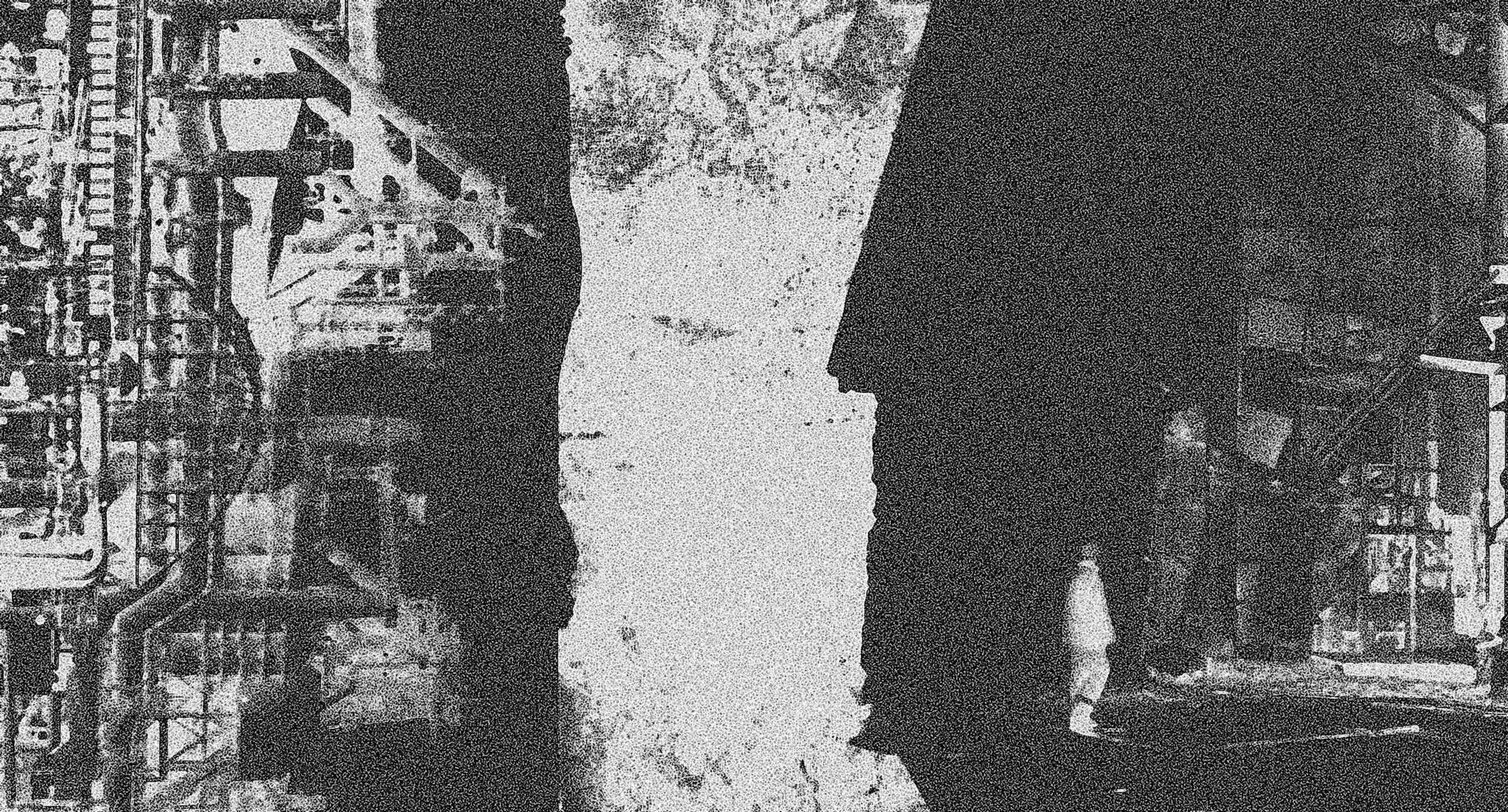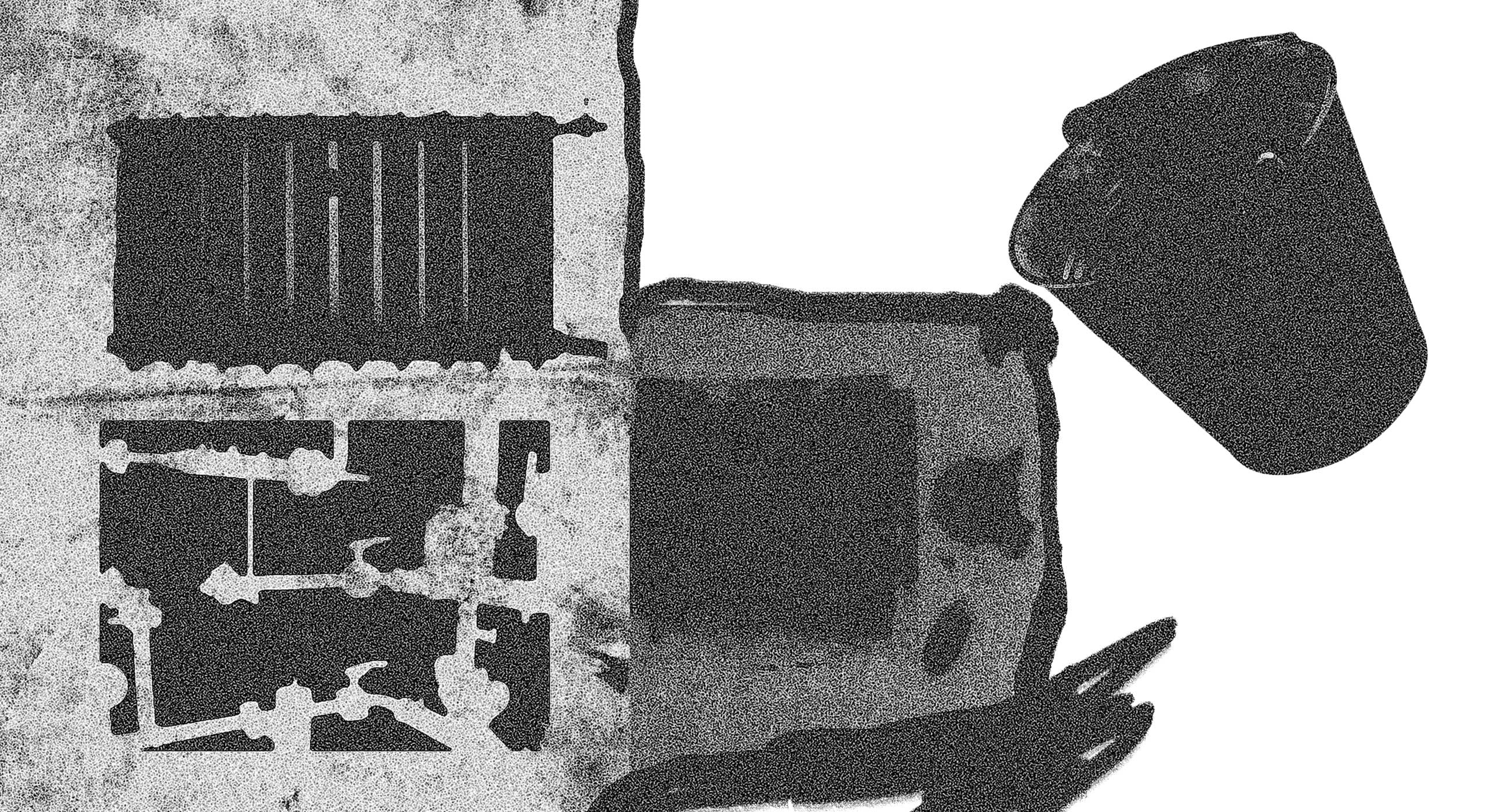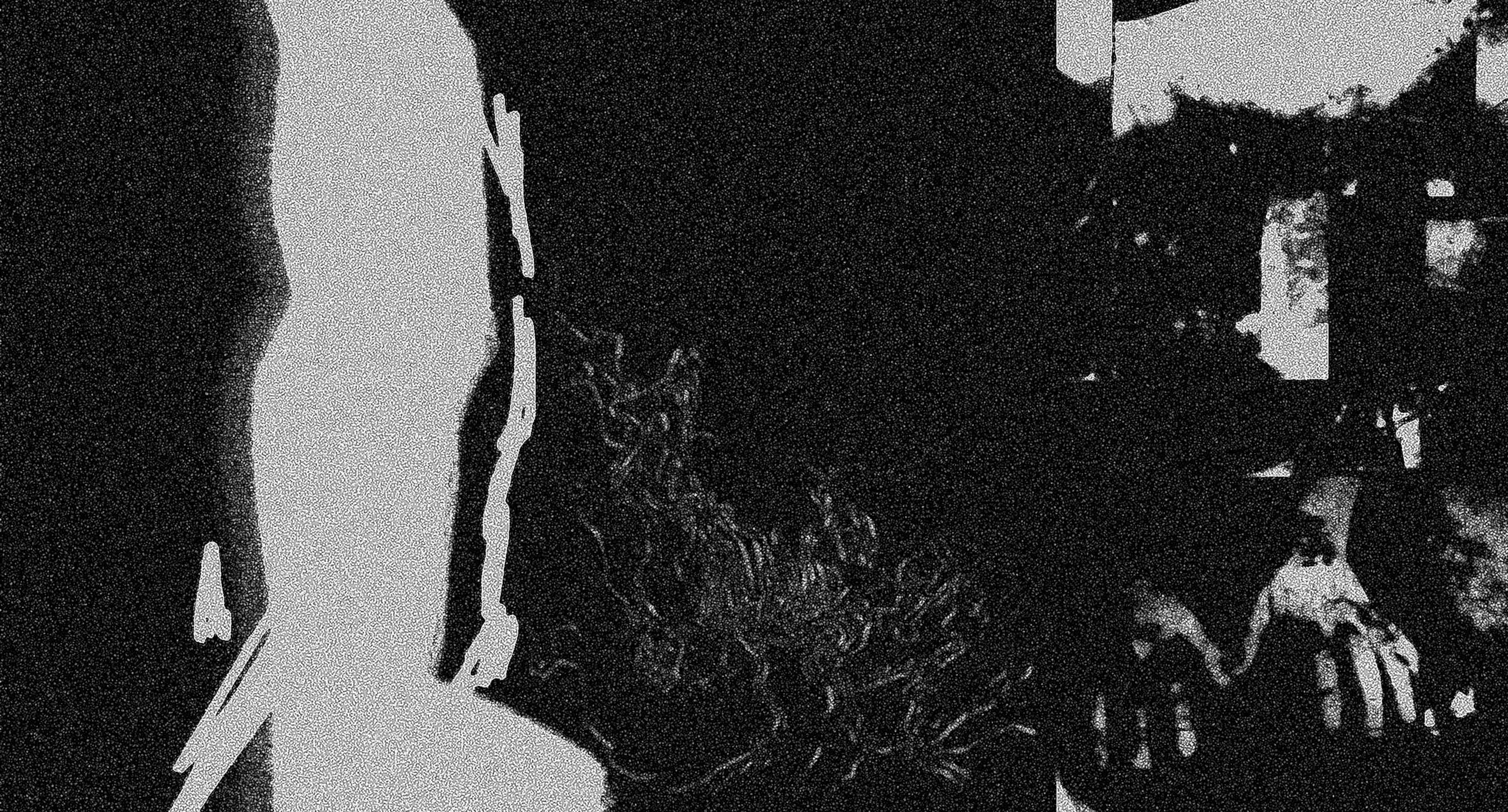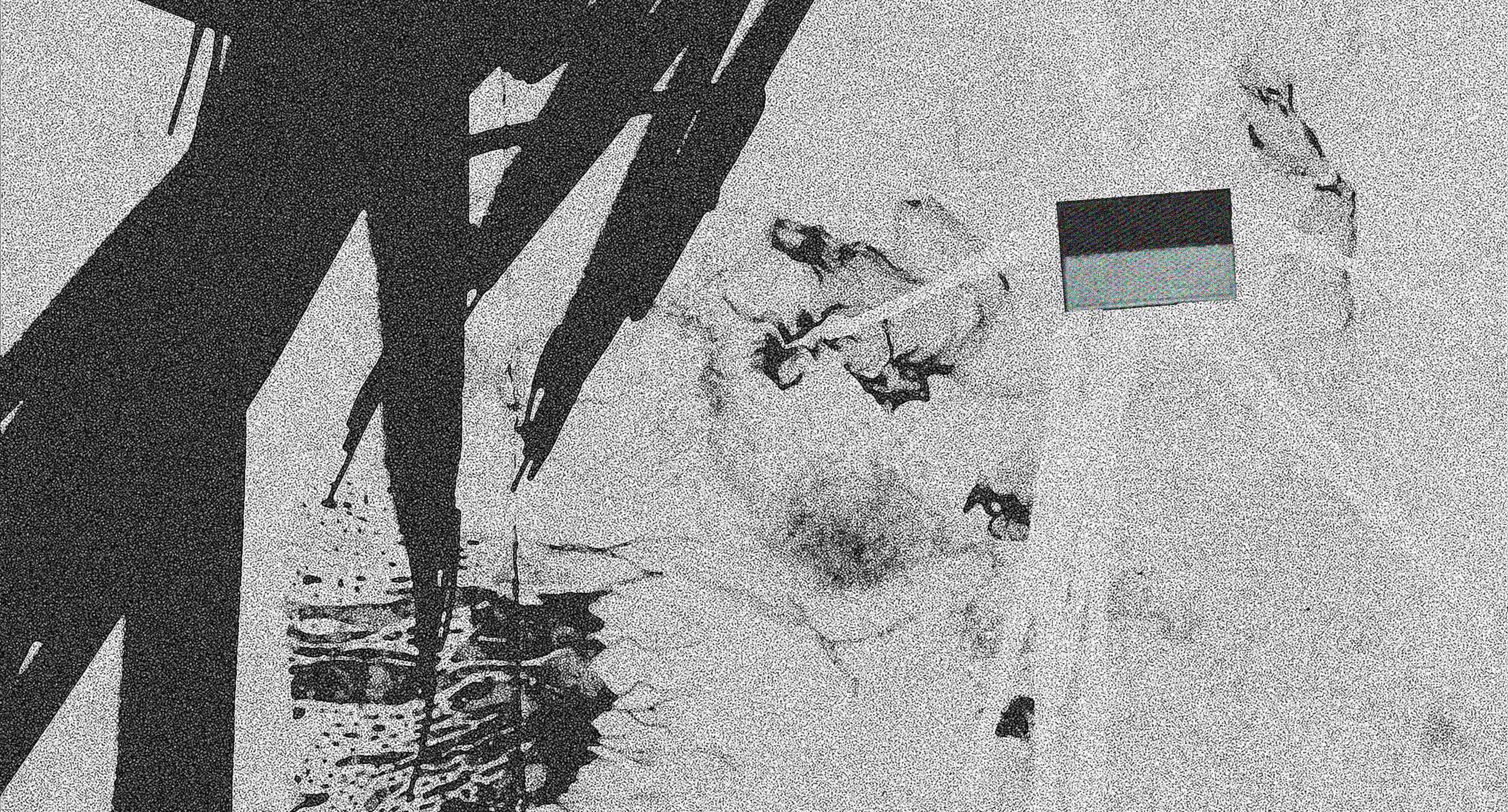“He Was Lying There with Glassy Eyes. I Understood That He Died.” Death from a Shell and Escape from Mariupol through the Eyes of One Family

According to the mayor of Mariupol, Vadym Boychenko, as of the beginning of April, more than 40,000 citizens ended up in filtration camps on the territory of the DNR. Mostly, these are people who did not have the opportunity to leave the shelled settlements for the territory controlled by Ukraine. The family of Volodymyr Balabas is one of thousands of those who had to live under shelling for several weeks, lose a loved one, survive serious injuries, hospitals, filtration, and finally escape from the hell of Mariupol. Zaborona journalist Polina Vernyhor spoke with Volodymyr and tells his story.
The beginning of the war
Before the war, 24-year-old Volodymyr Balabas worked as an equipment repairer at Azovstal. He lived on the left bank of the city, on Voyiniv-Vyzvolyteliv street. On the morning of February 24, Volodymyr was going to work when he learned about a full-scale invasion from Telegram channels. Then he heard explosions somewhere nearby.
“In general, we periodically heard explosions even before this. Therefore, there was no great fear. I went to work. The explosions intensified. People at the factory were very worried and did not want to work. Everyone understood that these were not the usual explosions. Someone went home, and someone was afraid of losing their salary, so they stayed on shift,” Volodymyr recalls in a conversation with Zaborona.
The management of the workshops immediately said that everyone who wanted to go home could go – no one was forced to work. They didn’t want to stop the plant, but the very next day they switched it to a quiet run: only shop managers and people needed at the stages of managing the converter, blast furnaces and important units that cannot be stopped were allowed to go to work.
Volodymyr had been working until March 3. Then heavy bombing began – it became dangerous to drive to the factory. When Balabas was on his last shift, he saw the left bank burning. At the same time, communication in the city disappeared. Volodymyr could not call his family.
The man ran home. He planned to persuade the family to go to the bomb shelter on Azovstal – as it seemed, one of the safest places. However, his relatives refused to leave the apartment.
-

Collage: Kateryna Kruhlyk / Zaborona
At the beginning of the war, Volodymyr moved to his parents. Two of his brothers moved there – one of them brought his girlfriend. So the six of them lived in a two-room apartment. From the first day of the war, in most of the family conversations, Volodymyr tried to convince his parents to leave Mariupol. Also, he recalls, the family circle often discussed whether there was enough food. Food, according to calculations, should be enough for a month. There were some stocks even before the war, they managed to buy something in the first days of the invasion when it was still possible to do it.
“We were constantly talking about how to survive,” he says. “But the parents did not want to leave. They said that they are at home here, and if they go somewhere else, they will be homeless there.”
In search of survival
The electricity, heating, and water in Mariupol were turned off on March 2. Volodymyr and his relatives were not very frightened. They had a large solar panel that powered a battery — the family charged flashlights and phones. The cold was the only thing that caused severe discomfort. At the beginning of March, the air temperature in Mariupol reached -10 degrees Celsius. Volodymyr tried to find a potbelly stove.
He went to the home appliances store to see if there were any electric furnaces left. A projectile hit this store the day before. There were no stoves, but he took building materials to strengthen the windows.
Near the store, there was a large burnt supermarket. Volodymyr saw that people were taking away food from there. He loaded the car with various products and drove home. The guy divided the food among his neighbors. So he went to the supermarket several times to distribute products to neighboring houses.
“People were very different. Someone lived near the destroyed stores – it was more convenient for them to go out and pick up groceries. But they didn’t want to because they felt like they were doing something wrong. Someone was simply afraid to leave the house because of shelling. And someone carried out almost the whole shop. I don’t think it was looting. Personally, we did not touch clean and closed shops. I went to stores that were hit by shelling – the products were just lying around and spoiling,” he explains.
Balabas also went to the well for water. There, he took 200 liters at once – he attached two large tubs to the car, inserted a hose into them, and poured water for those neighbors who could not physically walk to draw water.
-

Collage: Kateryna Kruhlyk / Zaborona
Volodymyr’s family had a reserve of 150 liters of rainwater and 100 liters of clean drinking water. But it always seemed that this was not enough: everyone was afraid that something might happen to the well.
In mid-March, a rocket hit the apartment house Volodymyr’s parents lived in. The fire spread to the roof and gradually approached the apartment. Volodymyr and his neighbors went to put out the fire. They took buckets with scarce water with them: someone melted the snow, someone collected water from the pipes, someone extinguished it with drinking water. Part of the building, including the apartment of Volodymyr’s parents, was saved.
The shelling intensified, there was still no electricity and heating, and food was gradually running out. Volodymyr did manage to persuade his relatives to go. On March 19, the family decided to leave – the day before, DNR militants approached the neighboring high-rise buildings. On the street, the occupiers approached Volodymyr and advised him to flee, because they were planning to shoot at his house: “They said that we can go through the green corridor to the DNR. We had to drive only a couple of kilometers to a place where there was no shooting. We discussed and decided that we will go to the DNR territory, and from there we will go abroad.”
Explosion
The family began to collect things and load them into the car. At some point, when Volodymyr, his two brothers, his father and three neighbors were in the yard, a projectile fell nearby.
“I just fell to my knees from the blast wave. When I opened my eyes, I saw my brother. He was lying on the ground with glassy eyes. I understood that he died. I looked at another brother – he had a hole in his head [the wound was not fatal]. I was very scared. In a moment I assessed my condition and realized that I could not move my leg. I thought I broke it,” says Volodymyr.
Father survived. He went to his wife, and Volodymyr, his brother and neighbors hid in the porch. Relatives bandaged the injured and took them to the hospital.
The hospital was crowded. There were no windows and no light. Volodymyr was examined: fragments were stuck in his knee, and a bandage was applied. It turned out that the father also had a fragment in his leg. The brother was taken to surgery: his face was stitched up, and his finger had to be amputated. All were subsequently sent home.
-

Collage: Kateryna Kruhlyk / Zaborona
In the morning, the family realized that if they stayed, they would die. They had to leave. Volodymyr and his father took the back seats out of the car and left them in the middle of the street so that there would be more space for people.
The body of Volodymyr’s brother remained to lie in the same place. At that moment there was no strength to bury him. And there was a lack of time: it was necessary to urgently take the wounded to a safer hospital.
Hospitals and threats due to the blue-yellow flag
The family managed to leave the city quickly. The occupiers stopped them twice: they said that more white things should be hung on the car so that it would not be perceived as military. Due to the fact that there were wounded people in the car, the family was let through rather quickly.
“They talked to us, in principle, politely,” says Volodymyr. “They were interested in what kind of wounds people had and offered some help. My brother and I are young guys, so at one of the checkpoints, they checked our documents to make sure we were not military men. But everything was fast.”
The family came to the hospital in Novoazovsk, Donetsk region. On the first day, a nurse entered the ward where Volodymyr was lying and looked carefully at his work jacket with the Ukrainian flag pasted on it. She left and returned a few minutes later with a soldier.
“I don’t remember exactly what he said. It all came down to the fact that Ukrainians are bad people, the Ukrainian flag is a symbol of bad people, and he is a good person fighting against this regime. He explained for a long time how cool he is and how bad I am for coming here. The only thing I remember almost verbatim was his threat to feed me this flag if I didn’t take it off,” the man recalls.
The family stayed in Novoazovsk for one day. Then they went to Donetsk. Doctors from the local hospital fed them and gave them clean clothes. Volodymyr and his father were placed in a ward, and his brother was taken to another hospital for surgery. Another wounded resident of Mariupol and three Russian soldiers were lying in the ward. One of them was from the DNR. He said that he did not want to go to war.
“They treated us normally. We kept neutrality and did not enter into a dispute with them. It was simply dangerous to say anything, being in the same space with the military, who firmly believe that Ukrainians are Nazis, that they themselves are fighting against an evil that needs to be completely exterminated. The only thing I could say is that Mariupol was a very beautiful city before the war and now it is simply gone. Donetsk was also a big city and stopped developing when it fell under the DNR. For these guys, my words were white noise,” says Volodymyr.
Filtration
The Balabas family stayed in Donetsk for about three weeks. The brother needed more operations – they had to be done in a more equipped hospital. That’s why they decided to leave. However, in order to go to Russia, it was necessary to go through a filtration camp.
At that time, on average, refugees from Mariupol had to wait in line for about two weeks. If you go through filtering in Donetsk, it takes even longer. Therefore, they decided to go to Starobeshevo.
-

Collage: Kateryna Kruhlyk / Zaborona
“We arrived at something like a police station. There was a huge line in front of it. Someone came in cars – they slept in these cars. We said we were wounded. Negotiated with the local law enforcement officers. It’s normal that they let the wounded pass without a queue. But of course, the people in line didn’t like it. However, they later saw my brother and calmed down,” says Volodymyr.
The road to Russia was not easy. There were a lot of cars on the road and huge queues at checkpoints. the occupiers carefully checked the documents and searched the cars and even scanned them with an X-ray scanner, as at train stations and airports.
In Russia, the family stayed in a hotel for three days — they needed a break from the road. From there they drove to Georgia. Volunteers met them in Tbilisi: they helped with housing, job search, things and food for the first time.
A new life with old traumas
Now Volodymyr continues to be treated for the consequences of the war. Most likely, it will not be possible to safely remove the fragments of the enemy projectile, so he works with rehabilitation specialists and is gradually recovering. His brother has already undergone several difficult surgeries on his hand and face, but the doctors’ prognosis for him is also optimistic.
Volodymyr realized that he did not really like the specialty he was doing before the war, and now he is learning a new profession – he dreams of becoming an interior designer. In a couple of weeks, he managed to learn the basics and is now trying to find a job where he would be trained in practice.
However, Volodymyr’s family does not plan to stay in Georgia. They are looking at other countries where they could settle down and find well-paid jobs.
Volodymyr’s parents are very homesick and even wanted to return to Mariupol. It seems to them that their apartment could have survived.
But, says Volodymyr, there is no question of returning yet, because the city has absolutely no living conditions: “For me, my apartment was gone at the moment when the city died. I don’t really care if anything survives. What is the point of going to that apartment, if it will be under Russia?”.








